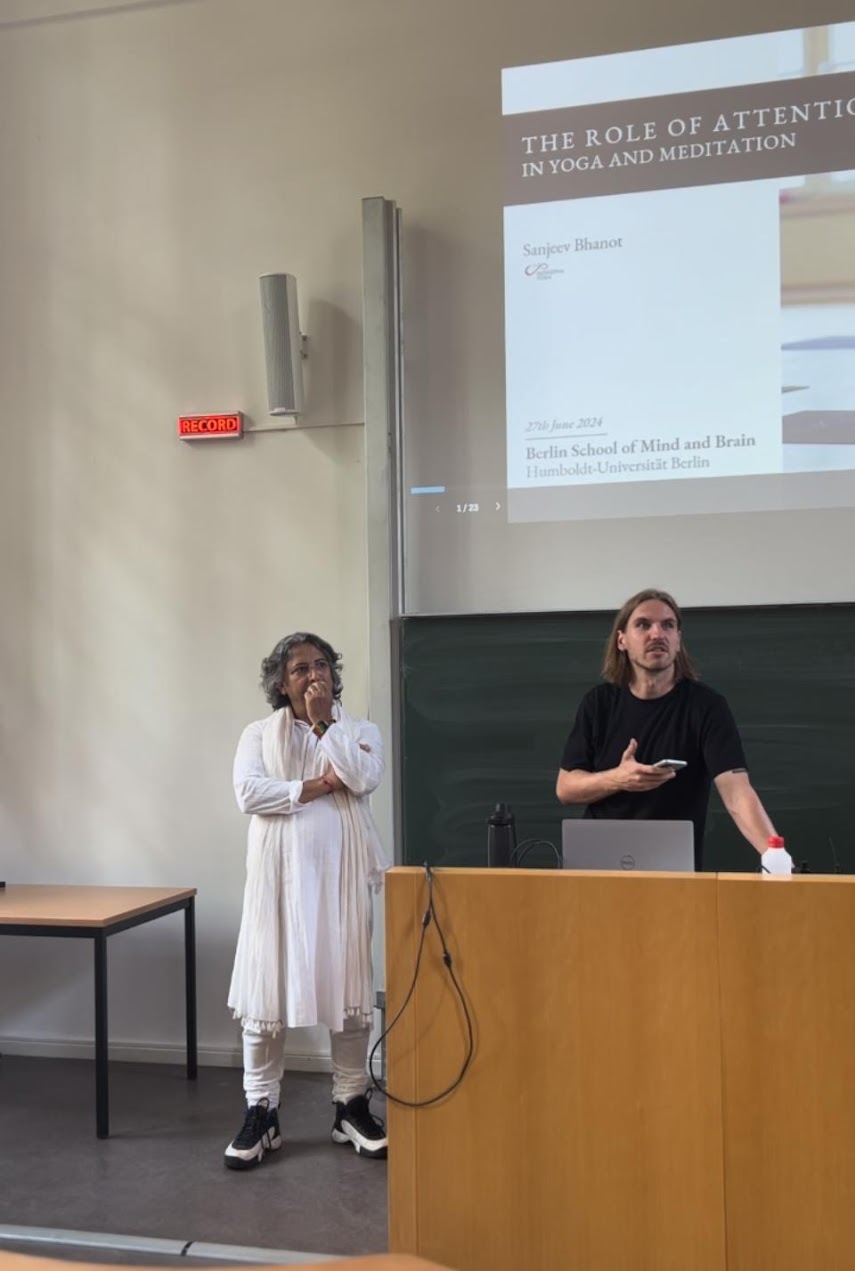Teaching
Attention in cognitive science and in contemplative traditions
I devised this seminar course on attention in cognitive science and in contemplative traditions for the Master students at the Berlin School of Mind and Brain (Humboldt University). The course started with an overview of the philosophical and historical foundations of the concept of attention. Then, we reviewed the different categories of attention studied in the cognitive (neuro)sciences and integrated them within an attentional state space defined by two orthogonal axes. The first axis distinguished between external (sensory input) and internal (mental input) attention, while the second one distinguished between on-task (goal-directed) and off-task (distraction) attention (e.g., mind wandering can be seen as internal off-task attention). Finally, I questioned, together with the students, if and how attentional concepts from contemplative traditions (e.g., attention to the present moment, in the body) fit into this taxonomy, and whether they can be tested in or provide inspiration for experimental research. This seminar course included guest lectures from experts in contemplative traditions (e.g., Sanjeev Bhanot in the picture below).

Other
I have been a teaching assistant (e.g., Academic Skills for 2nd Bachelor students at Ghent University, 2018) and gave guest lectures (e.g., a class on memory for Bachelor students at Ghent University, 2023).
